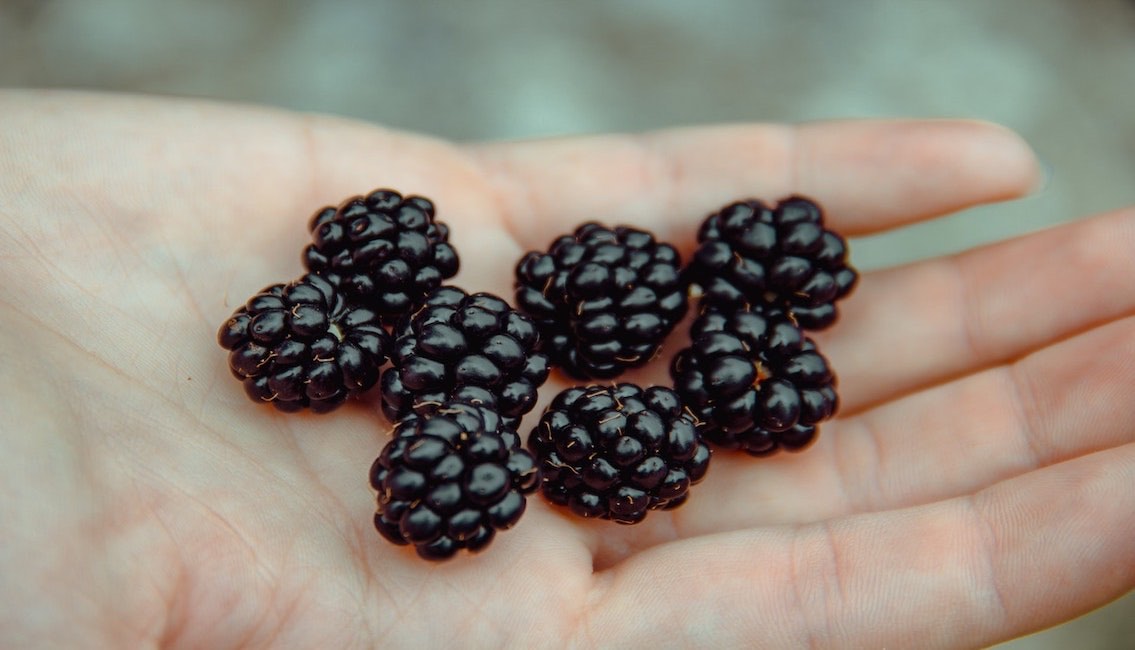Migraines and headaches have long been known as symptoms of inflammation. A natural response to bring healing to an area. When you sprain or bruise any part of your body, it will become hot and inflamed.
Naturally, your body is sending energy to heal, however when there are multiple areas of inflammation, this can lead to chronic disease.
Inflammation has been given much attention of late. Due to scientists finding that inflammation is associated with most lifestyle-related chronic illnesses. In the west, lifestyle-related chronic illness such as diabetes, cancer and heart disease, are the main cause of death.
Which is sad, because simply choosing better daily habits could save many lives.
For this reason, lifestyle medicine is on the rise, providing a global mainstream movement for change. One of the major contributing factors of the development of chronic illness, and thus inflammation, is dietary choices.
Additionally, low-grade inflammation (metaflammation) is characteristic of ageing. Healthcare focus has quite rightly shifted to how we can reduce inflammation by pursuing healthier lifestyles.
One such approach is ensuring that you are consuming adequate amounts of anti-inflammatory foods. In this article, we’ll delve into the 9 best evidence-based nutrients that have been proven to reduce inflammation. So you can pack your diet with these foods as part of your healthy routine.
What is Metaflammation?
Metainflammation is a low-grade form of systemic inflammation, associated with most, if not all modern lifestyle-related chronic diseases.
Metabolic and immune systems have a bidirectional relationship and are among the most fundamental requirements for survival.
These findings have changed the focus for much of the medical community, from simply clinical solutions to a more inclusive approach that takes into consideration lifestyle and environmental factors.
Without further ado, let’s dive into the foods that reduce inflammation…
1. Grapes
Grapes contain an antioxidant known as a “phytoalexin,” which has chemoprotective and therapeutic effects, especially on the skin.
Resveratrol is another active compound in grapes that’s been proven to have anti-ageing properties, especially related to the skin.
Other antioxidant properties that grapes provide, thanks to the compound resveratrol, mean that it is cardioprotective.
Curiously people living in Southern France have very low mortality rates from coronary heart disease (CHD), one of the biggest killers in western civilisation. Despite them consuming a high-fat diet and often smoking copious amounts of cigarettes.
This paradox has been attributed to their plentiful consumption of red wine, which is high in resveratrol.
2. Blackberry (Leaf and fruit)
Blackberries have anti-inflammatory properties that protect many systems of the body.
One 2013 study found that blackberries protect your teeth against some of the bacteria that cause oral disease. Blackberries may also improve brain health, according to a paper published in the Journal of Agricultural and Food Chemistry.
The antioxidants in blackberries fight off free radicals that contribute to illness and ageing.
Blackberry leaf tea has traditionally been used to treat mouth ulcers as well as sore gums and throat. The anti-inflammatory properties of blackberry leaf, in part, is due to the high vitamin C content.
3. Black cherry
Cherry (especially black cherry) is rich in anthocyanins which are pigments known for their anti-inflammatory properties.
Interestingly, anthocyanins give the cherries their vibrant colour, and also can be used as pH indicators. The deeper the colour of cherry, the more alkaline the cherry is.
It’s important to note that there’s a difference between acidic foods and acid-forming foods that promote acidic conditions in the body.
Research has revealed that antioxidants in cherries can reduce both inflammation and pain. One study where volunteers drank cherry juice for 21 days in a row reduced pain in those suffering from osteoarthritis (OA).
When the scientists tested the blood of participants, the markers for inflammation had dropped significantly.
4. Turmeric
Turmeric is a vibrant antioxidant-rich yellow-orange root that’s anti-inflammatory, a free radical scavenger, and antimicrobial.
Used in Ayurveda to promote health and wellbeing for thousands of years. Curcumin is the bioactive, fat-soluble nutrient derived from turmeric root that contains many life-giving qualities.
Cellular degradation due to oxidative stress is prevalent in all forms of illness and injury, both chronic and acute. Free radicals are formed in high quantities after injury, strenuous exercise, excessive stress, or trauma, and all trigger the body’s inflammatory response.
Curcumin works to effectively promote a healthy anti-inflammatory response while also removing toxic free radicals.
5. Green Tea (and certain mushrooms)
A lot of people have a cup of tea to unwind and relax, especially in Britain. Historically drinking tea has been synonymous with relaxation, and for good reason.
Science is now backing up this long-held belief. L-theanine, a compound in tea, discovered in 1949, was singled out as the amino acid responsible for tea’s soothing properties.
The supplement L-theanine is often taken by people to relieve stress, promote sleep and reduce anxiety. Although often it is chemically synthesised, and not derived from green tea.
If you’re looking for a natural way to relax and also reduce inflammation, green tea is a great source of L-theanine.
Specific mushrooms (Xerocomus badius) also contain L-theanine and polysaccharides that have potent anti-inflammatory properties.
6. Blackcurrant
It has been confirmed that black currant is a potent anti-inflammatory, thanks to the gamma-linolenic acid (GLA) in the fruit.
GLA is an omega-6 fatty acid that can reduce inflammation in the body. Blackcurrants also contain anthocyanin’s that further reduce inflammation.
In one study, participants could reduce their pain medication thanks to the consumption of GLA’s.
Concentrated blackcurrant supplements have also been found to boost the immune response in those who habitually exercised.
Allowing them the ability to exercise for longer, in turn, boosting athletic performance.
Blackcurrant seed oil was also used in another study of healthy older adults and was found to boost their immune system.
7. Redcurrant
Redcurrant is a powerhouse for healing and nutrition.
When consumed regularly, red currant has been found to reduce chronic illness, which is characterised by high levels of inflammation.
Again it’s the anthocyanins that give red currants their health-promoting properties.
This is especially true when you select red currents that are high in the anthocyanin cyanidin-3-rutinoside.
Interestingly, anthocyanins offer a wide range of healing properties including chemoprotection, boosting eye health and also healing blood vessels.
8. Elderberry
Elderberries are another fruit that you should consume if you want to reduce inflammation. Studies have shown that elderberries provide many anti-inflammatory and antioxidant effects.
Elderberries have been used as a natural medicine for hundreds, if not thousands of years. Some studies have shown that drinking elderberry juice may reduce the risk of Alzheimer’s.
Elderberries are also bursting with nutrition, namely vitamin C, flavonols and anthocyanins.
Flavonols can reduce inflammation by inhibiting the enzymes of inflammation.
One amazing quality of consuming concentrated elderberry juice is that it boosts the immune system. In one study, elderberries were found to reduce the severity of flu symptoms.
Related: 5 Compelling Reasons to Eat Berries
9. Plum
Plums are bursting with antioxidants, which help to remove free radicals that cause inflammation.
In particular, plums contain high amounts of polyphenols that boost bone health and have been found to reduce the risk of heart disease and diabetes in some studies.
Plums contain double the amount of polyphenols when compared to peaches.
In one study polyphenols were found to reduce inflammatory markers associated with lung and joint diseases.
Plums may also help with reducing blood sugar, despite being high in carbs. Similarly, plums are very acidic (pH 3) but don’t create an acidic environment in the body.
In Conclusion
Berries are some of the most healing foods on the planet. Especially when consumed daily.
If you concentrate berry juice, then you will be taking an elixir for health. It is important to note, however, that regular juice concentrate bought in a supermarket is filled with sugar and not a suitable form of berries.
The juice must be extracted and concentrated in a specific way to retain its healing qualities.
All berries offer a wide range of health benefits, from reducing inflammation, and cleansing the blood to enhancing vision and boosting skin health. Reducing inflammation protects cells from damage by allowing them the freedom to move and thrive.
Written by best-selling author and integrative nutrition health coach Rowanna Watson, who has a passion for natural health. Rowanna is an expert in all areas of holistic health, plant-based nutrition, detoxification and personal development.
Water for Health Ltd began trading in 2007 with the goal of positively affecting the lives of many. We still retain that mission because we believe that proper hydration and nutrition can make a massive difference to people’s health and quality of life. Click here to find out more.




























Leave a comment